Agency management: How JP│KOM creates value for its stakeholders, and gets a competitive edge in the market
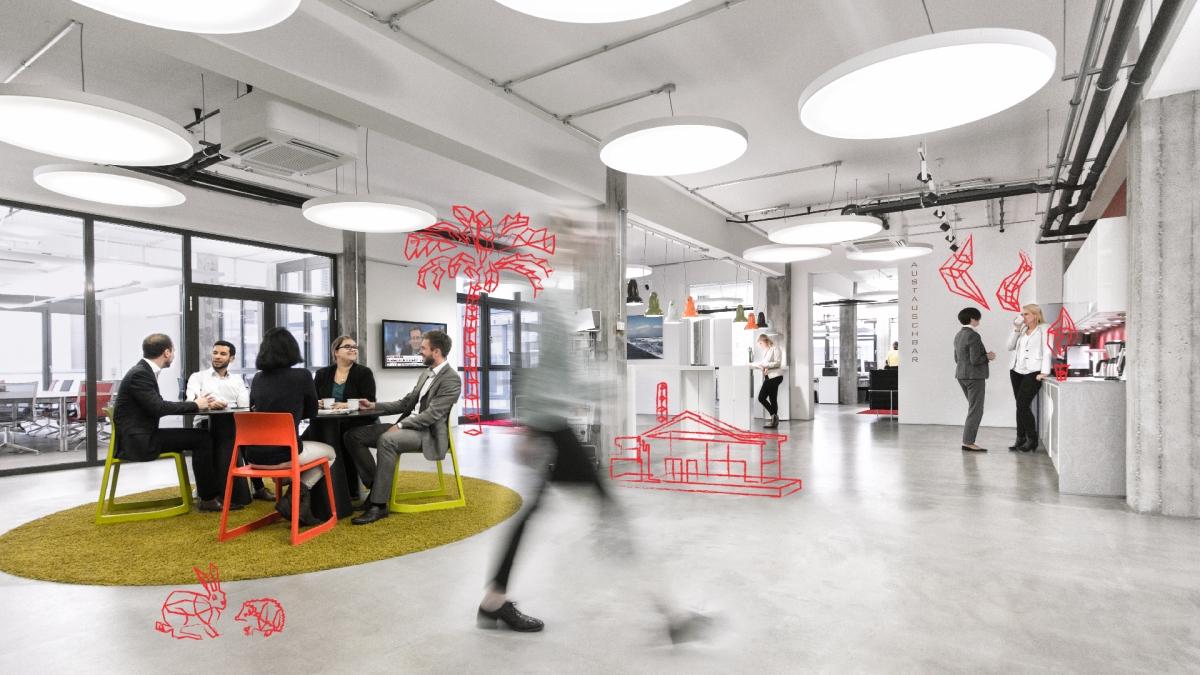
At the beginning of his speech, Pfannenberg emphasized that Germany’s economic and social climate differs from other markets – even mature ones: Germany’s economy has been growing steadily in the last few years. Known for its cars, consumer goods and high-quality engineering, Germany is a leader in worldwide exports and enjoys almost full employment.
Economic growth also influences the German PR agency market, which has been growing in total revenue and workforce numbers and made considerable progress in quality and professionalization in the past 10 years. PR in Germany is clearly out of its infancy stage!
Major trends in Germany’s Economy and Society – and in the Agency Market
Trends in economy and society
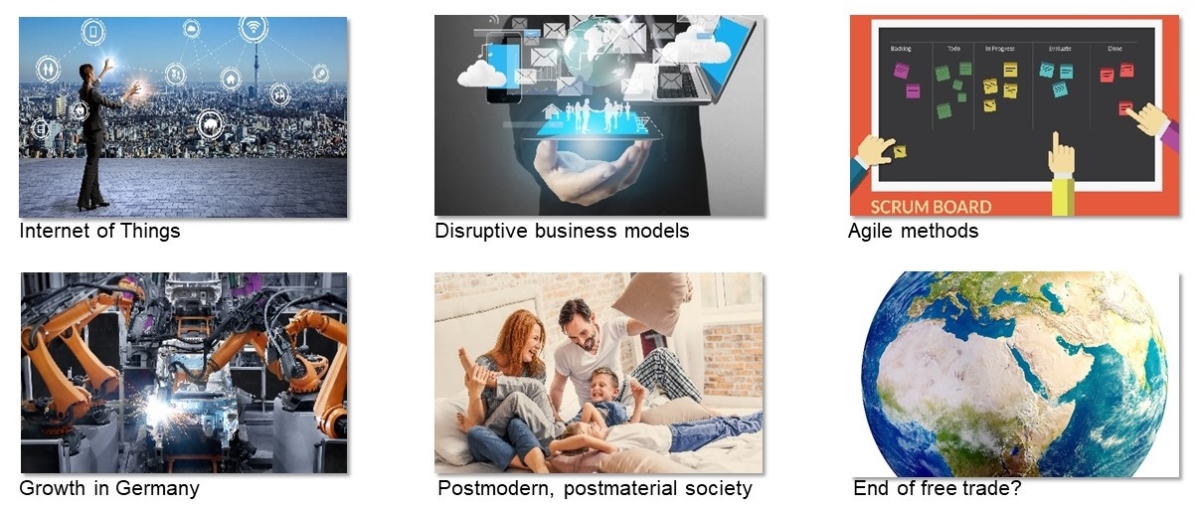
However, the boom results in challenges as well: many industries, PR being one of them, suffer from – as the Germans call it – Fachkräftemangel (shortage of skilled, specialized professionals). The result: an increasingly competitive landscape for recruiting and retaining talented employees, an outright “war for talents”. Good employees are hard to find and even harder to keep.
Trends in the German agency market
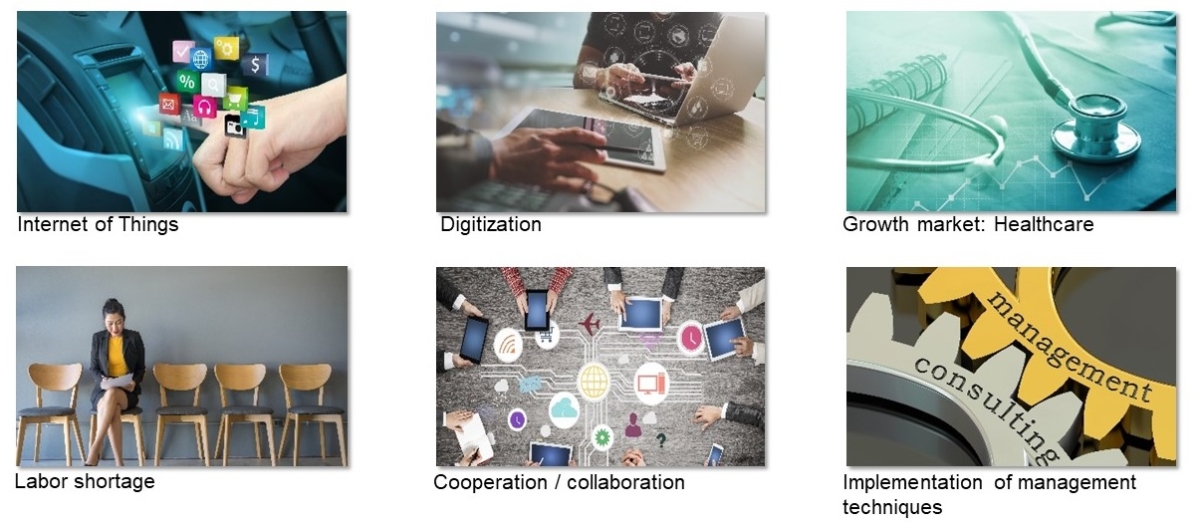
A clear mission and strategy
In this environment, with challenging economic, societal and political trends, agencies constantly have to ask themselves: What does it need to create value and succeed in competition?
A clear scope and an attractive mission. To differentiate from competition, an agency needs a clear scope and mission, and of course a clearly defined area of expertise and a unique approach (methods and technology). For JP│KOM this guiding topic is change. Using a strategic approach and management tools, JP│KOM empowers customers – predominantly from B2B and healthcare industries – for the digital transformation.
JP│KOM’s brand promise
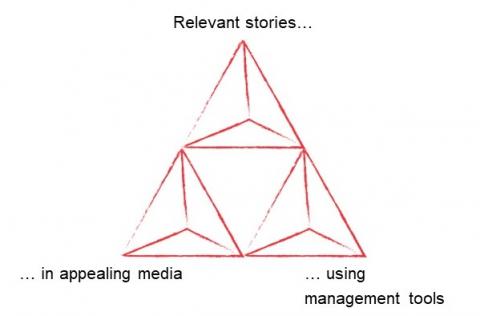
A unique brand identity. The JP│KOM brand gives profile to the agency’s distinctive features: The agency positions itself as a frontrunner for innovation and change, and follows a “Digital First”-strategy in all its decisions, its consulting practice and in the design of media. Driven by technology, JP│KOM is committed to quality and to deliver measurable results for customers. As a difference to other creative agencies, JP│KOM’s processes are driven by the use of management tools.
JP│KOM’s logo and visual identity
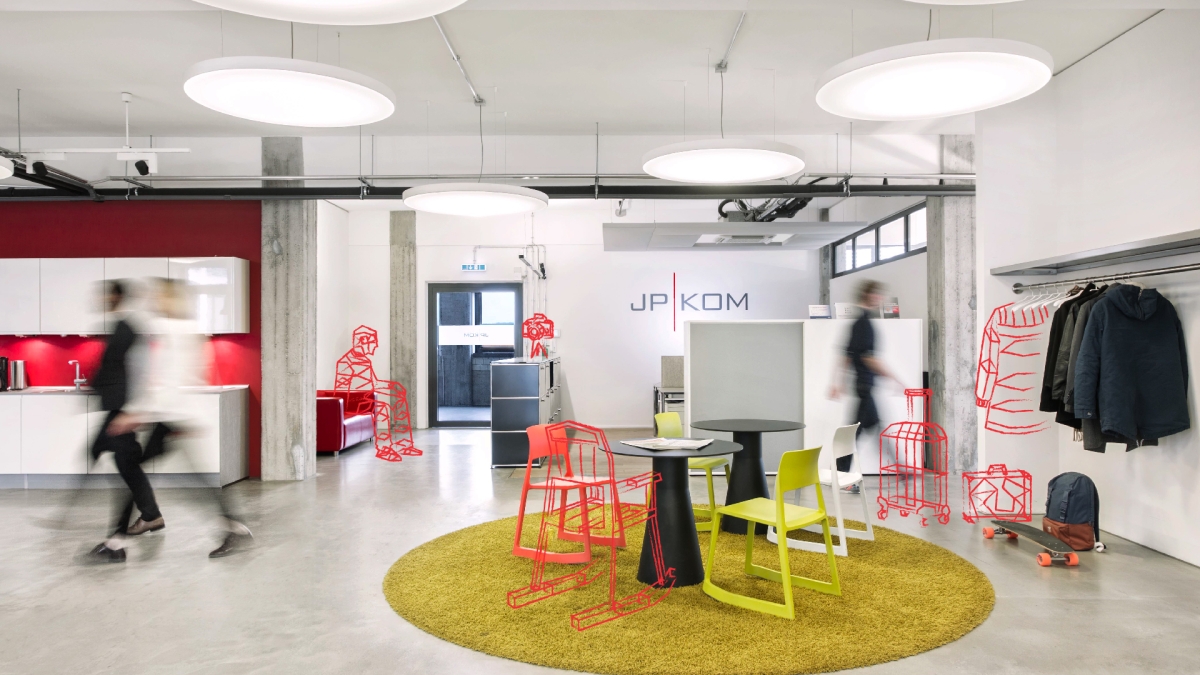
Breaking down the strategy to management processes: Strategy Map and Balanced Scorecard
The question “How we can create value for our stakeholders and succeed in competition?” is a strategic one. But at the same time, it should drive daily management practice. Good tools to translate vision and strategy to day-to-day business are the Strategy Map and Balanced Scorecard of Kaplan/Norton. The Strategy Map shows the value links between HR and IT management, process management (aiming at excellence), Marketing/Sales and Branding, and financial targets such as profitable growth.
In each of the four levels, value creation takes place: for the owner, for the customers, for the communities, and last, but not least, for the employees of JP│KOM. To check and update its strategy according to new trends in economy, society, in the industries of the customers and in the agency market, JP│KOM also employs agile tools like the Business Model Canvas and the Product Design Canvas.
Strategy map of JP│KOM with Value Links
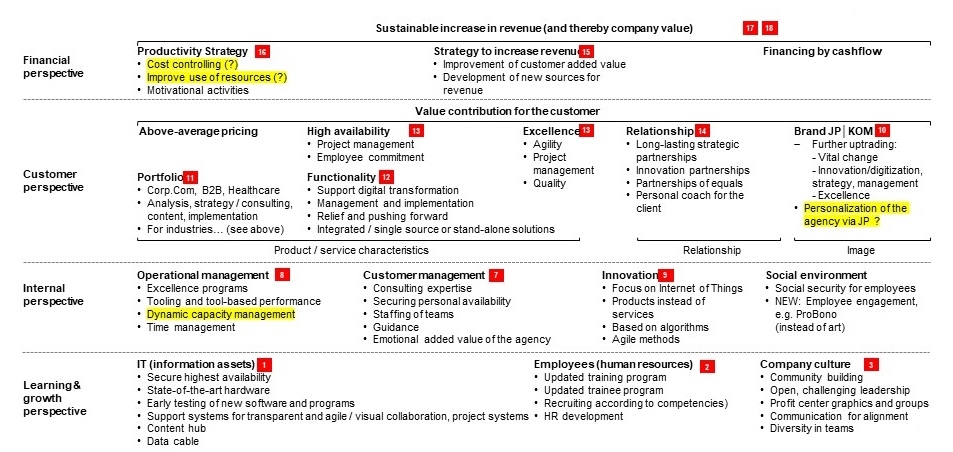
Through the Balanced Scorecard key targets of the Strategy Map are tracked with Key Performance Indicators (KPIs). The Corporate Scorecard is the central tool for the controlling of management programs which are designed to create value on the four levels of the strategy map.
Each year, clear targets for the agency’s overall finances, customers, processes and employees are defined. These targets are then broken down to group and employee level. The respective group and employee scorecards are also the basis for appraisal interviews and incentives – a very transparent, performance-oriented system.
Balanced Scorecard of JP│KOM
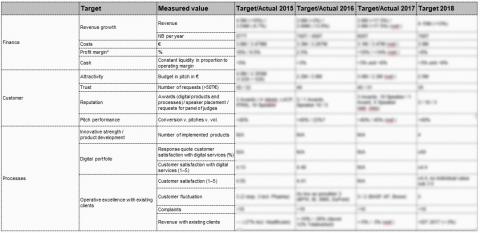
Agile approaches to project and innovation management
There is no doubt that classic project management tools continue to be a solid foundation to deliver excellent consulting, products and services. At the same time, increasingly disruptive and fast change processes in our society require new approaches and behaviors.
Disruptive change requires new forms of management
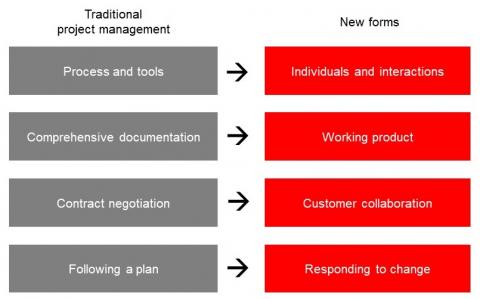
At JP│KOM, new forms of management bid farewell to rigid processes and tools. Focus is shifted towards a more open, collaborative approach. Agile methods are not only reflected in the way employees work together, but also in the workspace itself.
- The shift from isolated offices to open spaces enables more opportunities for collaboration and interdisciplinary teamwork.
- Tools like writeable walls and surface hubs facilitate new problem-solving approaches like design thinking and agile methods.
- Web-based, collaborative project management tools make it possible to keep track on tasks and even supersede traditional ways of interacting with clients like emails and phone calls.
- State-of-the-art IT systems enable state-of-the-art products and services, according to the key belief of the digital age “technology drives business”.

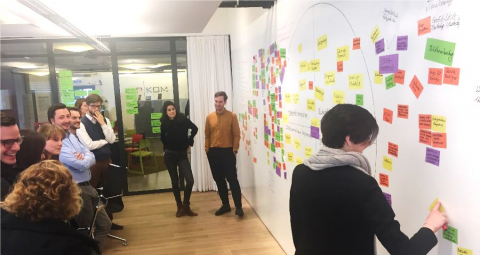
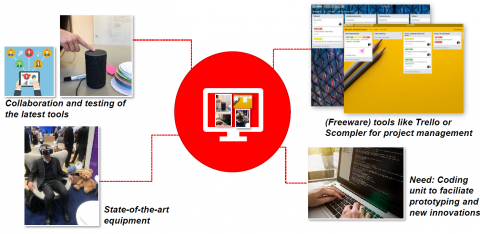
Employee engagement is more than HR
To win the “war for talents”, agencies must come up with concepts to attract and keep generations X, Y and Z – experienced consultants, young and soon-to-be professionals – alike.
- Modern spaces allow for flexible working – be it collaborating in an open space or retreating to focus on a challenging project.
- Events parties and leisure activities (arts, sports, culture etc.) foster the exchange between employees and help to build communities.
- Providing time and budget for CSR engagements and private interests help employees to strike a balance between work and leisure time / life outside of office.
Currently, JP│KOM is reassembling its HR systems. From the get-go, employees have been involved in the process and helped to develop HR’s future direction in a series of workshops focusing on competencies, leadership, recruiting, onboarding and community building. The results of the workshops are in the process of being implemented and will help push JP│KOM’s vision for the future and secure its competitive edge in the German market.
Joerg Pfannenberg's original presentation (May, 2018):
